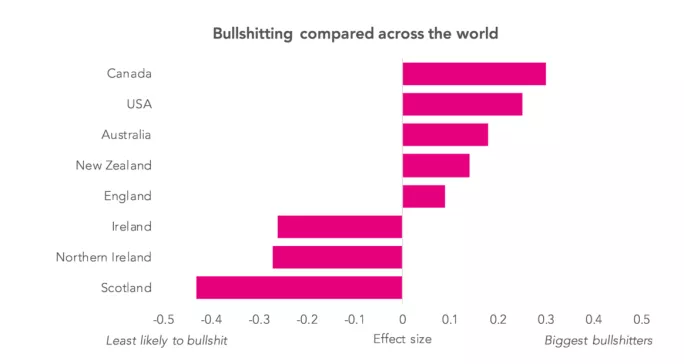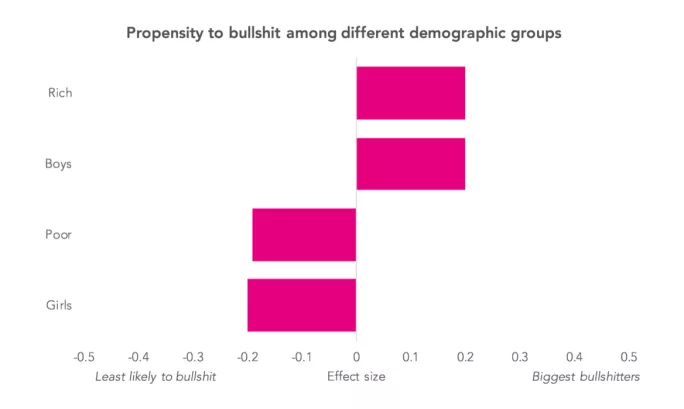It has been described as the basis of public schoolboy confidence. The ability to bullshit your way through a job interview or seminar - speaking confidently without actively knowing a great deal about the subject in question - can be of great benefit.
But across the globe, which teenagers are most likely to do it?
Related: How to teach pupils to bullshit like public schoolboys
Pisa: England’s pupils among the most segregated by ability
Is Pisa reliable? ‘It is ridiculous that Pisa is now making teachers anxious’
New analysis of data from the 2012 Programme for International Student Assessment (Pisa), an annual test of 15-year-olds in reading, maths and science from 80 countries - found that North American teens are the most likely to say they know something when they don’t, with Canada coming top, closely followed by the US.
In the middle, England, Australia and New Zealand are somewhat likely to bullshit, while teenagers in Ireland, Northern Ireland and Scotland are the most straight-talking.
Boys were also more likely to bullshit than girls, as were richer pupils than their less advantaged peers.
The data was analysed by John Jerrim, professor of education and social statistics at the UCL Institute of Education.
In the 2012 Pisa tests, candidates were asked to rank how well they understood 16 mathematical constructs on a five-point scale, from 1 (“never heard of it”) to 5 (“know it well, understand the concept”). Three of the concepts did not exist, yet some teenagers claimed to know them well anyway.
Professor Jerrim used the data from the three false constructs to create a “bullshit scale”.
In his blog post on the subject, Professor Jerrim said: “So, if on the way home tonight you meet a charming, posh, male Canadian, perhaps it’s best you don’t believe everything that they say…”
He added: “This work was, of course, meant to be light-hearted and a bit of fun. But it does also have a serious side.
“Everyone knows a bullshitter. Yet there has been surprisingly little research done into this widespread social phenomenon. Resources such as Pisa, when used in imaginative ways, can tell us a lot more about the world in which we live than just educational achievement alone.”






